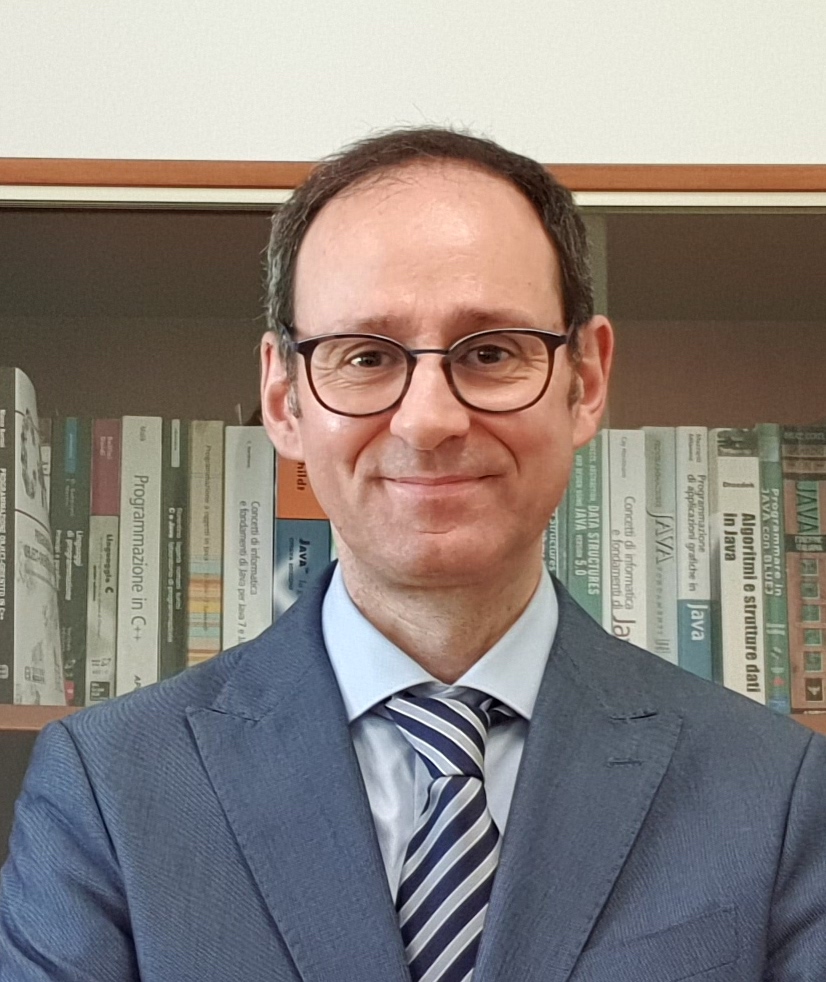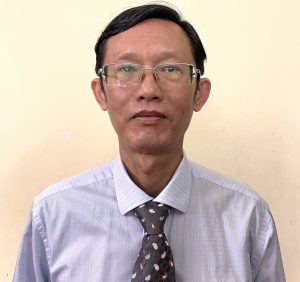
Prof. Giacomo Cabri
Title: Adaptive coordination of autonomous vehicles
Bio:
Giacomo Cabri is a full professor in Computer Engineering at the University of Modena and Reggio Emilia. His current research interests include: distributed systems, complex agent systems, software engineering, mobile computing, and object-oriented programming. In these areas, he has published more than 180 publications, among which 43 in peer-reviewed international journals, and he has received 9 best paper
awards. He was involved in different national and international research projects. He is in the program committee of several workshops and conferences and has been General Chair of IEEE WETICE 2004, of ACM PPPJ 2008, and of WETICE 2014. He is a senior member of ACM and IEEE.
Abstract:
Autonomous vehicles are going to spread in our streets and will soon be part of our everyday life. While most of the research has focused on how to improve the single vehicle, attention must be paid also to the coordination of sets of vehicles. In this keynote I present the problems that coordination aims at addressing and I propose some solutions. The talk focuses mainly on approaches related to managing vehicles at intersections, one of the most challenging aspects of autonomous vehicles. I show auction-based and bio-inspired approaches, addressing also multi-intersection networks and context-aware intersection managers. I sketch also issues related to parking and traffic, two other aspects that must be addressed by researchers in the field.
 Dr. Hafiz Mahfooz Ul Haque
Dr. Hafiz Mahfooz Ul Haque
Title: Future Trends of Non-monotonicity in Context-aware Systems
Bio:
Dr. Mahfooz is currently working as an Associate Professor in the Department of Software Engineering at the University of Lahore, Pakistan. He has received his PhD in Computer Science from the University of Nottingham (UK) and MSc. Information Technology from the University of Punjab(Pakistan). He has authored various papers and book chapters in reputed journals and conferences. He is a member Technical Program Committee (TPC) in international conferences and journals and has chaired conference sessions. His research areas revolve around modelling and reasoning smart spaces using context-aware systems. The focused research keywords are context-aware computing, multi-context systems, semantic knowledge modelling, and formal verification of resource-bounded context-aware systems. He has been successfully leveraging his expertise in various industrial research and development projects.
Abstract:
Recent years have witnessed that context-aware systems have gained significant attention in different facets of life including smart homes, health-care, agri-cultures, etc. With the prevalence of uncertainty and inconsistency in a highly decentralized environment, it is becoming more challenging where sensors and/or smart devices are deployed to take appropriate action autonomously using the right information at the right time in the right place whenever and wherever needed. The imperfect nature of context may often cause uncertain or inconsistent behavior when developing complex smart systems for the heterogeneous environment. In this talk, Dr. Mahfooz will discuss the major challenges and he will present future trends of non-monotonicity in context-aware systems.
 Prof. Dang Thanh Tin
Prof. Dang Thanh Tin
Title: Recognizing Area of Pulsations of Jugular Vein to Measure Jugular Venous Pressure via video camera systems
Bio:
Dr. Dang Thanh Tin, Lab of Information Systems Engineering– Faculty of Electrical and Electronics Engineering, Ho Chi Minh city University of Technology–Viet Nam National University–Ho Chi Minh city (HCMUT-VNU-HCM), got Bachelor of Engineering at HCMUT in 1991, obtained his Ph.D in Imaging processing with the major of coding scheme in the cooperation between HCMUT and Osaka Sangyo University (JAPAN) in 2006. He was a research fellow in Faculty of Electrical and Computer Engineering at University of Illinois at Urbana Champaign (USA) in 2006, and in Lab of LCS (Laboratoire de Conception et d’Intégration des Systèmes) at Grenoble INP-Esisar (FRANCE) in 2011. He has been the associate professor in Faculty of Electrical and Electronics Engineering, HCMUT-VNU-HCM since 2013.
His research activities deal with imaging systems in biomedical engineering- telemedicine systems, X-ray systems, CAD in medical imaging, medical expert systems, machine learning models on medical imaging; and multimedia systems – standards for imaging, images and videos in TV, videophone.
Abstract:
Based on the reflection of a pattern of infrared (IR) dots on depth frames created by the IR camera, the oscillation of the certain region on human body is detected and recorded at different time points. The data are analyzed, filtered to build a depth map whose data are converted into the distance in millimeter between the camera and the measured subject. The method uses the depth map to realize the area of soft pulses of internal Jugular Vein (JV). The program of the system must reduce noise and the effect of vigorous thrusts of carotid artery in video stream in order to find out jugular venous pressure via identifying highest oscillation point of jugular venous pulsations. The capturing system includes a computer with program installed, a PrimeSense camera, a special ruler called JT ruler. A lamp may be also used if the light is not enough for the detection of the system. The system can be used to measuring patients’ jugular venous pressure in real time via video stream on patients’ neck while they stay on bed at 45 degrees.
This system can also be used to measure the respiration rate by changing the position of the PrimeSense camera.

